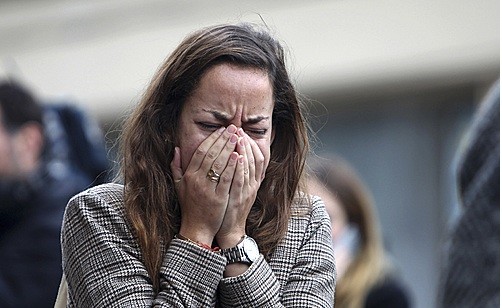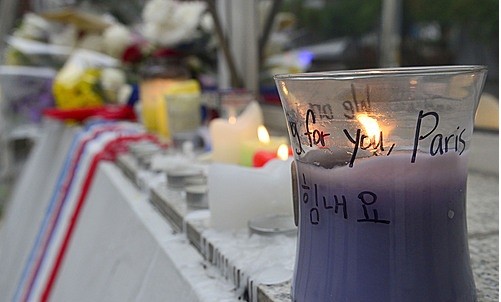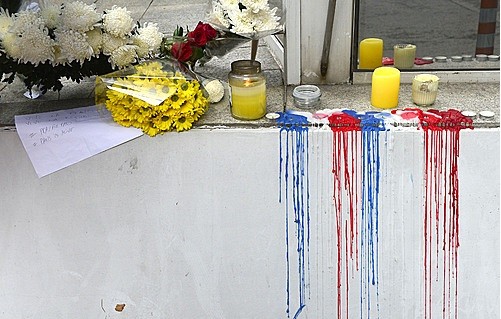
[Special Economy=Eunji Kim]The Paris terror attacks have rattled the nation and the world, bringing fear and shock to humanity and sending waves to the European economy already suffering from low growth rate.
On Monday, the French stock market index, CAC 40, opened on a weak note and ended 0.1% lower; London's FTSE-100 index slipped 1%; the euro currency fell 0.7%.
Elsewhere, the benchmark Saudi index, Tadawul, fell almost 3% to its lowest level since the first trading day of 2014 and Egypt's main index, the EGX 30, plummeted by over 4%.
Consequently, areas where Europe will be affected are: travel, restaurants, hotel, flights and the wartime industry. Mostly, its tourism will receive a strong setback.
As the number one tourism country in the world, France attracts 80 million visitors and its earnings from this industry takes up 7% of its GDP. If the number of tourists decreases due to the terror attack, France's economic growth rate can fall, too.
Some experts say France can witness what America experienced after 9/11--recession and deflation.

Currently, the Eurozone's third quarter GDP this year grew 0.3% than previous quarter, according to Eurostat, which conducts various statistics on Europe. This level does not meet the market prediction of 0.4% and is lower than first quarter (0.5%) and second quarter (0.4%) growth rate.
Furthermore, the increase in prices and deflation caused France and Germany's third quarter GDP to grow only about 0.3% from last quarter.
With all this economic slowdown, plus the Paris terror attack, experts say Europe is bound to fall harder into bad economic time.
To combat this, it's possible that the Europe Central Bank will conduct quantitative easing but the question is: will it work? The answer whether consumer confidence can be restored remains to be answered.
As well, now border regulations and security search will be heightened and in turn, trade with other countries will be discouraged.

France will also have to deal with the cost of lives ended, demolished property and wrecked infrastructure. It will also have to minimize the effects of business interruption.
With that, France could look at how the U.S. dealt with its economy after September 11. The Bush government then encouraged aggressive spending, dropped interest rates to increase money supply for borrowing, investing and consuming. It also injected $100 billlion of additional liquidity into the U.S. banking system.
There is varying outlook into how these measures ultimately played out: some say former president Bush was able to bounce back the U.S. economy after it fell into recession all in two months after September 11. But, on another hand, others say due to higher military spending, high debt levels became the problem. On top of that, there was a lack of job creation.
Now it's up to France to look at other tragic events that occurred in history to attempt to cushion its economic burden that fell after the Paris terror attack.


